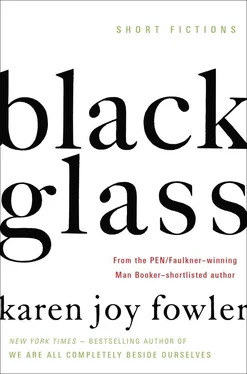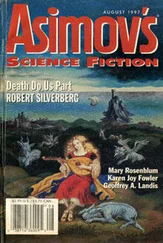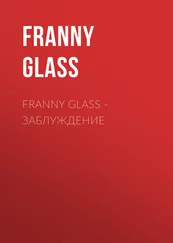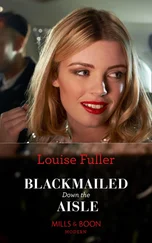• • •
MY AFFINITY GROUP was very kind about you. I would tell them frequently how the war would be over by Christmas, how you were responsible for the growing dissatisfaction among servicemen. Vets against the war, I said to them, was probably one of your ideas. They never mentioned how you never wrote. Neither did I. You were my wound. I had my broken ankle and I had you. It was so much more than they had. It made them protective of me.
They didn’t want me at any more demonstrations. “When you could run,” Lauren pointed out, “look what happened to you.” But I was there with them when the police cordoned off Sproul Plaza, trapping us inside, and gassed us from the air. You don’t want to believe this. Governor Ronald Reagan and all the major networks assured you that we had been asked to disperse but had refused. Only Poncho Taylor told the truth. We had not been allowed to leave. Anyone who tried to leave was clubbed. A helicopter flew over the area and dropped tear gas on us. The gas went into the hospital and into the neighboring residential areas. When the police asked the city to buy them a second helicopter so that they could enlarge operations, many people not of the radical persuasion objected. A committee was formed to prevent this purchase, a committee headed by an old Bay Area activist. She happened to be Poncho Taylor’s grandmother. Lauren took it as a sign from God.
Lauren’s passion for Poncho had continued to grow, and we had continued to feed it. It’s difficult to explain why Poncho had become so important to us. Partly it was just that Lauren loved him and we loved Lauren. Whatever Lauren wanted she should have. But partly it was the futility of our political work. We continued to do it but without energy, without hope. Poncho began to seem attainable when peace was not. Poncho began to represent the rest of our lives, outside the words.
Lauren told everyone how she felt. Our friends all knew and soon their friends knew and then the friends of their friends. It was like a message Lauren was sending to Poncho. And if it didn’t reach him, Lauren could combine useful political effort with another conduit. She called Poncho’s grandmother and volunteered us all for the Stop the Helicopter campaign.
We went to an evening organizational meeting. (We did more organizing than anything else.) Though now I remember that Julie did not come with us, but stayed at home to rendezvous in the empty apartment with her teaching assistant.
The meeting was crowded, but eventually we verified Poncho’s absence. After interminable discussion we were told to organize phone trees, circulate petitions, see that the city council meeting, scheduled for the end of the month, was packed with vocal opponents. Lauren couldn’t even get close to Poncho’s grandmother.
When we returned home, Julie was drunk. Her lover had failed to show, but Mike, a friend of mine, had come by with a bottle of wine. Julie had never known Mike very well or liked him very much, but he had stayed the whole evening and they had gotten along wonderfully. Julie had a large collection of Barbra Streisand records we refused to let her play. Mike had not only put them on but actually cried over them. “He’s a lot more sensitive than I thought,” Julie told me.
Mike denied it all. He was so drunk he wove from side to side even sitting down. He tried to kiss me and landed on my shoulder. “How did the meeting go?” he asked, and snorted when we told him. “Phone trees.” He lifted his head to grin at me, red-faced, unshaven, wine-soaked breath. “The old radicals are even less ballsy than the young ones.”
I picked up one of his hands. “Do you think it’s possible,” I asked him, “for a revolution to be entirely personal? Suppose we all concentrated on our own lives, filled them with revolutionary moments, revolutionary relationships. When we had enough of them, it would be a revolution.”
“No.” Mike removed his hand from mine. “It wouldn’t. That’s cowardice talking. That’s you being liberal. That’s you saying, ‘Let’s make a revolution, but let’s be nice about it.’ People are dying. There’s a real war going on. We can’t be incremental.”
“Exactly,” said Gretchen. “Exactly. Time is as much the issue as anything else.”
“Then we should all be carrying guns,” said Julie. “We should be planning political assassinations.”
“We should be robbing banks,” said Mike. “Or printing phony bills.” Mike had been known to pass a bad check or two, though he never needed the money. He was an auto mechanic by day, a dope dealer by night. He was the richest person we knew. “Lauren,” he called, and Lauren appeared in the doorway to the kitchen. “I came here tonight because I have a surprise for you.” He was grinning.
“If it’s dope, I’m not interested,” said Lauren. “Nor am I solvent.”
“What would you say,” Mike asked, “if I told you that right now, right at this very moment, I have Poncho Taylor’s car sitting in my garage waiting for repairs?” Lauren said we would go right over.
Poncho had a white convertible. Lauren loved it. She sat in the driver’s seat, because Poncho had sat there. She sat on the passenger side, because that was where she would be sitting herself. I discovered an old valentine in the glove compartment. Lauren was torn between the despair of thinking he already had a girlfriend and the thrill of finally discovering something personal. She opened it.
“Love and a hundred smooches, Deborah.” Lauren read it aloud disapprovingly. “This Deborah sounds like a real sap.”
“Poncho seems more and more to be the perfect match for you,” I added. The valentine had one feature of incontrovertible value. It had Poncho’s address on it. Lauren began to copy it, then looked at us.
“What the hell,” she said and put the whole thing in her purse.
I had no address for you, you know. I mean, in the beginning I did, and I probably should have written you first. Since I hardly talked to you when you came to say good-bye. Since I didn’t cry. I did miss you. I kept thinking you would write me. And then later, when I saw you wouldn’t, it was too late. Then I had no address. I couldn’t believe you would never write me. What happened to you?
Even our senators sent me form letters. More than I got from you.
Dear (fill in name),
Well, here I am in Vietnam! The people are little and the bugs are big, but the food is Army and that means American. As far as I can see, Saigon has been turned into one large brothel. I go there as often as I can. It beats my other way of interacting with the locals, which is to go up in planes and drop Willie Peter on them. Man, those suckers burn forever! I made my first ground kill yesterday. Little guy in a whole lot of pieces. You have to bring the body for the body count and the arm came off right in my hand. We were able to count him six times, which everybody said was really beautiful. Hey, he’s in so many pieces he’s never going to need any company but his own again. The dope is really heavy-duty here, too. I’ve lost my mind.
Listen, I got to go. We’re due out tonight on a walk-through with ARVN support, and you know what they say here about the ARVN — with friends like these… Ugly little buggers.
Dust off the women. I’ll be home by Christmas. Love you all.
(fill in name)
Now you’re angry. I hope. Who am I to condemn you? What do I know about the real war? Absolutely nothing. Gretchen says you’re a running-dog imperialist. She thinks she met you once before you left, before she knew me, at a party at Barbara Meyer’s. In Sausalito? I don’t think it was you. She waited a long time to tell me about it. I was married before she told me. I don’t think it was you.
Читать дальше












